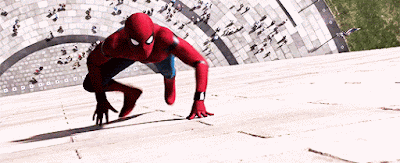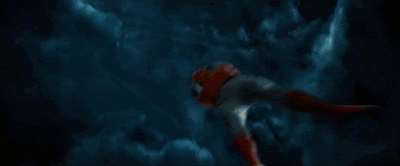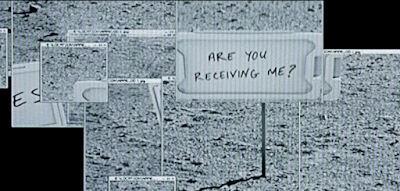or
A Corporation's Belly is Never Full (Mustafa Your Face)
Disney, the corporation, has been systematically making live-action versions of their beloved cartoons. Starting with 101 Dalmations in 1996. they've been doing it for awhile, but it has, in very recent years, increased in frequency to the point where it is now a veritable flood. There have been two versions of The Jungle Book (1994 and 2016, without and with songs, respectively), Tim Burton re-thinkings of Alice in Wonderland and Dumbo, Cinderella, Beauty and the Beast and Aladdin and "Wicked" re-imaginings of Sleeping Beauty, with many more on the way including Mulan, Pinocchio, The Little Mermaid, The Hunchback of Notre Dame, even Lilo & Stitch. It's a way to increase the Scrooge McDuck-like coffers, while not really hurting the history—the animated versions are still there, after all, just as are the original stories (where there are)...for those who think they were cheapened by being "Disney-fied." It's not like anything's being replaced and the first versions aren't available.
Now, comes a version of their jewel in the monetary crown—The Lion King, which became a smash in its animated version (Disney's most successful cartoon) as well as in its Tony Award winning Broadway version directed by Julie Taymor. Who would have suspected that such a late bloomer would be its most precious commodity? Certainly not me. I was never a fan of the animated film, thinking it a step down from the Ashman-Menken days of Disney's resurgence. Audiences did not agree, as it produced a lot of revenue for Disney, despite being derivative (being based on Shakespeare's "Hamlet") and having an inferior array of songs (by Tim Rice and Elton John). I was also unnerved that the most interesting character was the villain, and that the film created a fantasy world of animals, especially in the lion kingdom where the females do all the hunting and the males...well, the males just have bragging rights.
I was also found it (oh, I hate using this word) "un-American." Hear me out. The Lion King champions the idea that power is earned the old-fashioned way—you inherit it. No room for democracy in the Pride-lands; young Simba is presented to the world as the Future King and not only do all the animals have to show up for the presentation, they have to accept it—"Here's the next King; Show some respect." Okay, who can resist a baby lion-cub, but the whole idea of the Right of Succession is what the words of the Declaration of Independence—"We hold these truths to be self-evident, that all men are created equal..."—was arguing in the most basic words possible; the signers were declaring that you did not have to be born in the house of Windsor or Stuart or Plantagenet in order to hold positions of power over others—better that they be decided by a majority of those to be governed. But, here we are, celebrating "kingly" DNA. Fie on it!
The film opens with a nearly shot-by-shot recreation of the "Circle of Life" sequence (I'm still expecting that to be a slogan for a fast-food restaurant or the tag-line for a Soylent Green remake) as young Simba, the son of King Mustafa (James Earl Jones, the once and future...) and Queen Sarabi (Alfre Woodard), is presented to the animal kingdome as the next line of succession. This throws a bone into the craw of the King's brother, Scar (the wonderful Chiwetel Ejiofor, in a performance much more dynamic than his on-screen performances, taking much more of a Shakespearean tone—in fact, Timothy Dalton's Shakespearean tone). Simba's birth has kicked Scar down a rung from becoming King and, having previously lost in a battle for supremacy with Mustafa, sets his mind to roiling how he can supplant his decreasing fortunes—by either eliminating Simba or Mustafa.
You know how this goes—Scar uses Simba as a lure to do away with the King, sending the young Simba into exile and leaving a vacuum in leadership that Scar is only too happy to fill.
Simba is found by two jesters Timon and Pumbaa (Billy Eichorn and Seth Rogen and both better than you'd expect) who serve as the "Falstaff" to Simba's Prince Hal/Hamlet teaching him to let go of the past and live for the moment. The odd thing about having Rogen and Eichorn as the characters is that it turns the characters into unambitious loafs rather than mere free spirits—and their directives to eat grubs comes off as very convenient as the juicy worms can't talk—or sing—in protest. Simba grows up through his awkward phase and it is only due to him being found in exile that he returns to fight what is rotten in Scar-land.
It's all very similar and familiar—although the new one's PG rating allows the word "farting" in "Hakuna Matata" (rather than "Please, not in front of the kids!") and there is some suspicious cross-promotion between Disney products.
BIG difference, though, is how the CGI-photo-realistic animals compare to the stylization of animation. In animation, you can get away with anything, like smiling prideful lions or gravity-defying suspensions in the laws of physics (or, as above, "sashaying" animals) that the CGI modelling just won't allow.* The Lion King does NOT take place in The Uncanny Valley, and so anything that smacks of fantasy will get picked apart like digital carrion. And so, director Jon Favreau, cinematographer Caleb Deschanel, and the digital zoo-keepers work overtime to make the thing look like an episode of PBS' "Nature" (I kept wondering when David Attenborough was going to chime in: "The wart-hog, although not burdened by gastric issues, will most typ-ically..."belch"—and with alarming frequency." But, as the animals are doing all the monologing, he isn't needed). It's absolutely beautiful to look at, and often breath-taking in what it presents pictorially, even bringing about a real sense of majesty in realistic settings. It's just, in very subtle ways, off-putting.
The dialog is done subtly, so as to not make it too jarring. But, it also limits the movie in its theatricality. It's a bit less eccentric and a bit less entertaining as a result, a chronic problem with the Disney remakes. The studio is going to have to find a way—a brilliant solution ala Pixar—to cross the wide expanse between imaginative line-drawing and recreating reality in their fantasies.
It's not embarrassing—like, say, what they're trying to do with "Cats." But, it's a good attempt, even if this The Lion King keeps it down to a dull roar.
* There are no plans, as yet, to do a CGI version of Fantasia. Not yet, anyway. But, before they do it, I hope they solve the issue before attempting the sequence with the dancing hippos in tutus. That's something I'd like to see.






























































